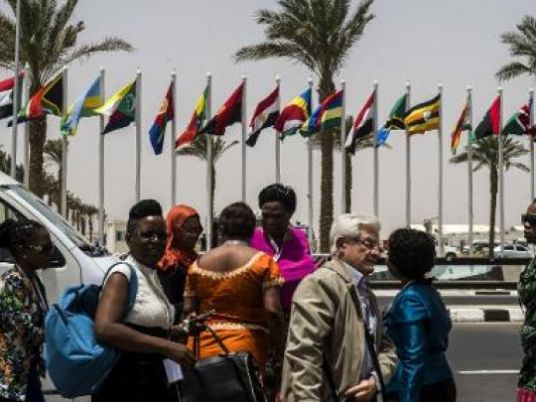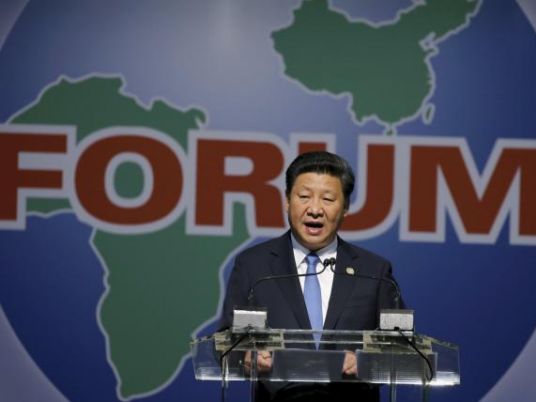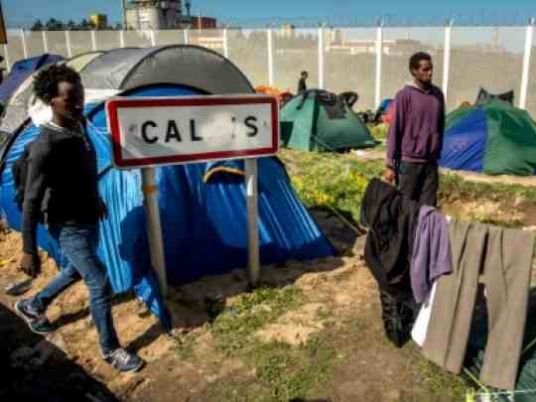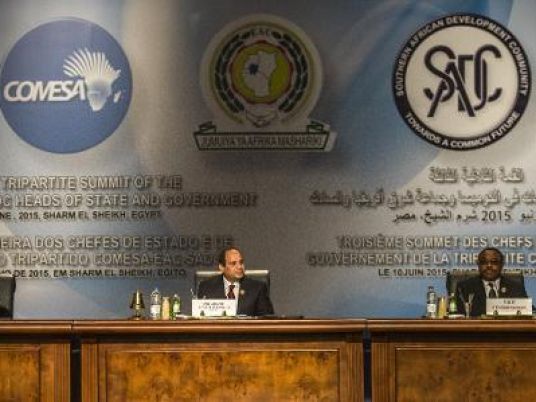
The leaders of 26 African countries gathered in Egypt Wednesday to sign a new trade pact to create a common market across half the continent that will serve 625 million people.
The Tripartite Free Trade Area (TFTA) will cap five years of negotiations to set up a common framework for preferential tariffs that will ease the movement of goods across member countries.
The signing will take place at a summit hosted by Egyptian President Abdel Fattah al-Sisi in the Red Sea resort of Sharm el-Sheikh, where negotiators finished drafting the deal this week.
"Tomorrow we complete the formalities. The text of the treaty is ready; the Sharm El-Sheikh Declaration is ready," Egypt's Minister of Industry and Trade Mounir Fakhri Abdel Nour told AFP.
The deal will pool the interests of the East African Community, Southern African Development Community and the Common Market for Eastern and Southern Africa (COMESA), whose countries have a combined gross domestic product of more than $1 trillion (885 billion euros).
Members of the three blocs range from relatively developed economies such as South Africa and Egypt to countries like Angola, Ethiopia and Mozambique, which are seen as having huge growth potential.
Negotiators said the agreement has addressed concerns such as management of trade disputes and protection for small manufacturers once the TFTA comes into force.
The schedule for "dismantling trade barriers" was yet to be worked out, said Abdel Nour, and the agreement will still have to be ratified by national parliaments within two years.
Officials said TFTA envisions the eventual merger of the three blocs, but that bilateral agreements between countries would continue.
"The ultimate goal is to ensure easy movement of goods in these countries without duties," said Peter Kiguta, director general of the Eastern African Community.
-'One trade regime'-
Despite scepticism, the TFTA has been widely welcomed by world business leaders, with experts pointing out that only 12 percent of Africa's trade is between countries on the continent.
The United Nations Conference on Trade and Development said in 2013 that if Africa is to boost its intra-continental trade, it must focus on creating "more space for the private sector to play an active role".
Analysts say that although the continent's growth over the past 15 years outstripped global GDP expansion by nearly three percentage points, it faced falling commodity prices, power shortages, political instability and corruption.
Abdel Nour said the TFTA will help expand the region's market, boost competition and attract investments as it also focuses on building infrastructure and production capacities.
"Egypt itself expects to export about $5 billion worth of goods over the next five years" to TFTA countries, he said.
The business community, in particular, would benefit from an improved and harmonised trade regime which reduces the cost of doing business as a result of the elimination of overlapping trade rules.
"What we have realised is that having one trade regime is better than the costly multiple trade regimes," said COMESA Secretary General Sindiso Ngwenya, who led the negotiations among the three blocs.
The TFTA provides a mechanism for the identification, reporting, monitoring and elimination of non-tariff barriers, officials say.
It also aims to raise Africa's share of global trade, which currently stands at about two percent.
"We believe that this sends a powerful message that Africa is committed to its economic integration agenda and in creating a conducive environment for trade and investment," the South African government said last week.



